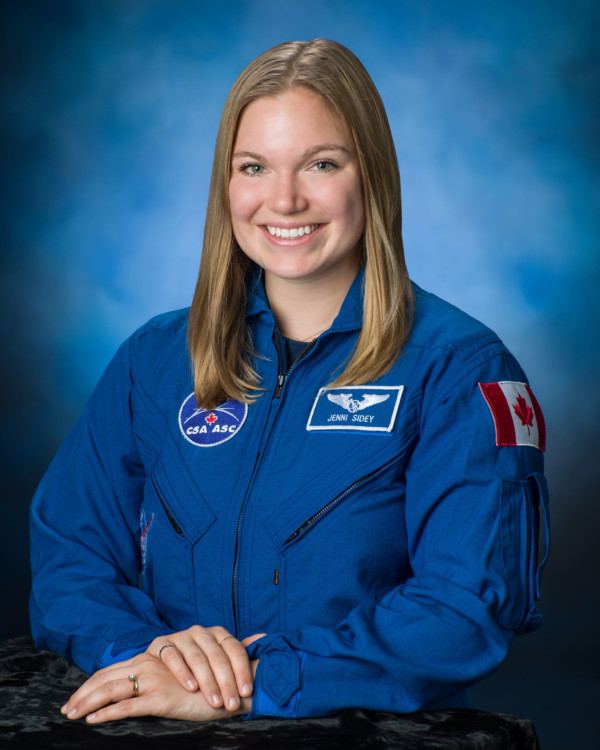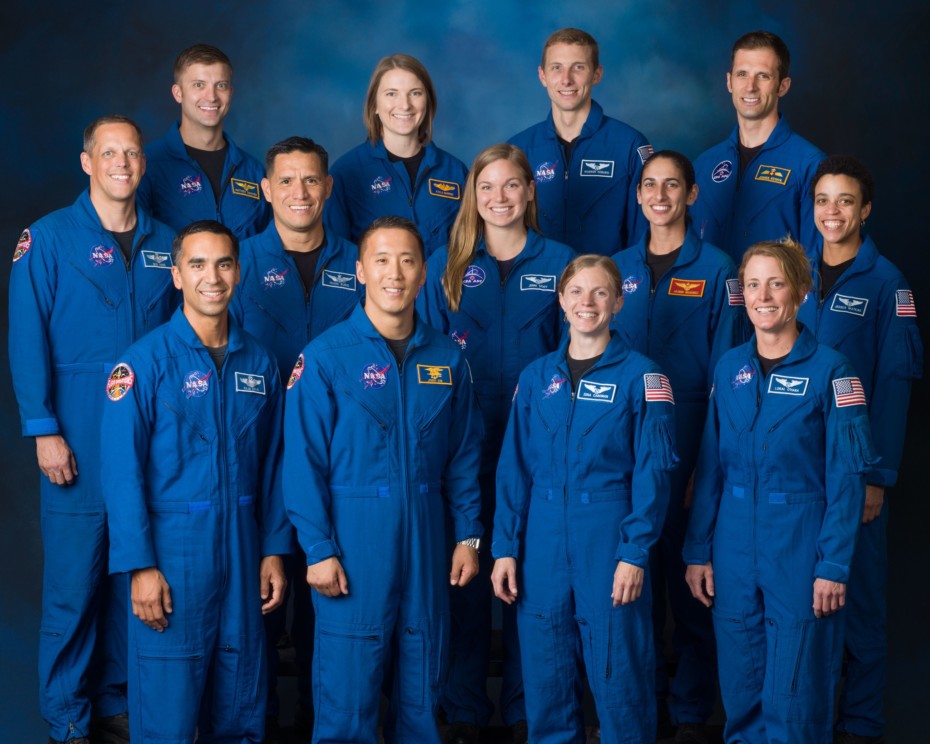When Jenni Sidey-Gibbons agrees to a phone interview at 5:20 pm, the phone rings at 5:20 pm. On the dot.
No surprise, really, as the McGill Engineering grad has chosen a profession that requires, among numerous other attributes, precision, impeccable timing and an unerring eye for detail. On this day, January 10, Sidey-Gibbons has just become an astronaut.

“It’s been a great day,” she says, and one can all but hear her smiling on the other end of the phone. Just hours before, she and 12 colleagues graduated from the ranks of astronaut candidates to astronaut in a ceremony at NASA’s Johnson Space Center in Houston.
During the ceremony each new astronaut received a silver pin, a tradition dating back to the Mercury 7 astronauts, who were selected in 1959. They will receive a gold pin once they complete their first spaceflights.
Of the graduating cohort, 11 graduates are NASA products, while Sidey-Gibbons and Joshua Kutryk represent the Canadian Space Agency as Canada’s 13th and 14th astronauts.
“Canada’s astronauts are our modern-day explorers. Not only do they help develop new space technologies, advance scientific knowledge and promote Canada in space, they inspire all Canadians to look to the stars and dream about what is possible,” said The Honourable Navdeep Bains, Minister of Innovation, Science and Industry. “Jenni and Joshua represent the best of Canada, both with our partners around the world, and our curious young people. I want to warmly congratulate them on completing this rigorous training.”
From flying jets to learning Russian: All in a day’s work
The graduation marked the end of more than two years of challenging – often arduous – training that tested each candidate physically and mentally.
Over that period, Sidey-Gibbons learned how to fly supersonic jets, operate the Canada Arm, speak Russian and safely extricate herself from a helicopter downed in deep water. All in a day’s work.
As astronauts, they will help develop spacecraft, support the teams currently in space and ultimately join the ranks of only about 500 people who have had the honour of going into space.
“We have now fulfilled those basic requirements to fly in space but we have certain proficiencies to maintain and, as new technologies develop, we will be trained on those as well,” says Sidey-Gibbons. “From here, I go on to supporting missions that are happening now. I do things like act as capsule communicator, to speak with people who are on orbit now. I act as support for upcoming missions, either working on the ISS program or other exploration projects.”
First woman on the Moon… or even Mars?
The excitement is palpable as Sidey-Gibbons talks about the next phase in her career.
And why not? Quite literally, the sky is no longer the limit as new graduates are now eligible to be assigned to missions destined for the International Space Station, the Moon, and ultimately, Mars. With a goal of sustainable lunar exploration later this decade, NASA will send the first woman and next man to the surface on the Moon by 2024. Additional lunar missions are planned once a year thereafter and human exploration of Mars is targeted for the mid-2030s.
When asked if she has a preference for a particular mission, Sidey-Gibbons takes a deep breath. “Oh gosh, I would take anything. I would just be so excited to fly in space,” she says. “I think it would be wonderful to represent Canada. I cannot imagine what it would be like to see Canada from space for the first time. It must be exceptional.”
Encouraging the explorers of tomorrow
While she’s been living in Houston, Texas for more than two years, Sidey-Gibbons tries to make it back home to Canada at least once a month to meet with Canadian youth as part of the Junior Astronauts program. She says it’s one of the very rewarding parts of her job.
“Exploration is such a part of Canada’s heritage. When I talk to young Canadian youth they are excited. They want to know what Canada has done in space and we will do in space,” she says. “I just feel so well-received and very, very lucky that my job is telling Canadians about space.”
At the end of the interview, Sidey-Gibbons is told that the McGill community is proud everything she has accomplished. Canada’s newest astronaut is grateful. “McGill was an incredibly encouraging place in many ways,” she says. “I feel like McGill gave me a wonderful foundation.”
The McGill Reporter profiled Jenni Sidey-Gibbons this past September. Read the article.

